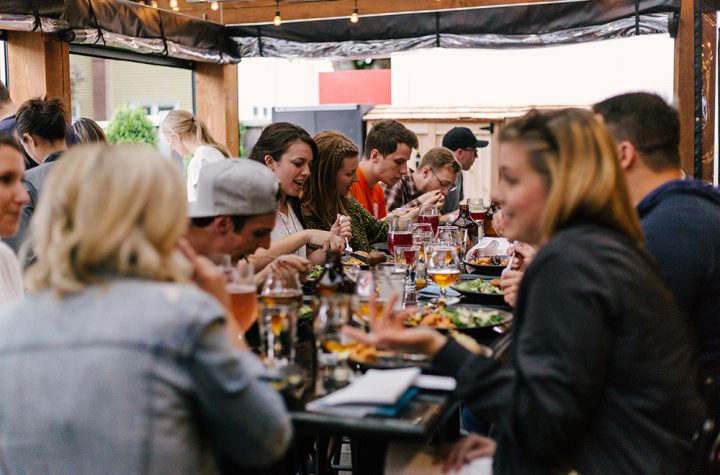
By Lyse Doucet & Mahfouz ZubaideBBC News, Kabul
image captionFreshta Hashimi and her fellow students found themselves in a bloodbath
On a day when autumn’s golden light bathed the tree-lined campus of Kabul University, its warm rays slanting through classrooms’ open windows, the first day of a course on peace and conflict resolution began.
In this kind of moment, so full of possibilities, you could almost forget it was just another day in a country steeped in war.
“You are starting the fifth semester in your bachelor’s degree so behave accordingly,” Professor Sayed Rateb Mozzafari counselled his class packed with some 50 young Afghan students. “Try not to get hit by a car,” he warned in a teasing tone.
Freshta Hashimi, 20, leaned across her desk and whispered with a wink to her classmate, “He has forgotten about suicide attacks”.
By the end of that day, at least 22 were dead, including university students and professors, and dozens more injured during
a brutal six-hour siege that began with a suicide bomber blowing himself up at a campus gate.
media captionGunshots heard as students try to escape the Kabul University
Security forces battled to end this bloody assault on 2 November, claimed by Islamic State militants, on Afghanistan’s largest and oldest university, a leafy compound which has educated and inspired rich and poor, from across the country, for decades.
“I shouted ‘jump out of the window or you will die’,” Freshta, a member of the university’s student council, recalled shouting as gunfire ricocheted along the corridors and into classrooms, and grenades were lobbed into rows of desks by gunmen prowling the halls.
In the frenzied rush to flee, two of Freshta’s closest friends were the last to jump from the first floor windows. They didn’t make it.
Ziba Ashgari drew her last breath as she clung to life, her body slumped over the window ledge. Haseena Hamdad died of a heart attack.
“Ziba had just got engaged and she was always saying, ‘One day I will be a diplomat’,” Freshta said. “And Haseena was the most intelligent girl in our class.”
We spoke a few days after the attack, which sent shock waves across Afghanistan and beyond – even at a time when Afghans are living and dying in everyday violence. Every story of a life taken that day is a chronicle of a dream destroyed, a passion and potential killed.
image captionZiba Ashgari could not make it out of the classroom window in time
The story of the victims is the story of the Afghan twenty-somethings, the generation which came of age after the US-led invasion of 2001, whose memories of Afghanistan’s civil war of the early 1990s, or the harsh Taliban rule which followed, are only anecdotes told and retold by parents and grandparents.
“They’re the generation of builders and change makers who can help heal our society if peace ever comes, because they didn’t live through those times,” said Shaharzad Akbar, who heads Afghanistan’s Independent Human Rights Commission.
“They talk about artificial intelligence, they talk about life on Mars, they talk about climate change. They have the potential to elevate our discourse, to move it beyond sensitive political issues, to discussions about being part of the global family,” he said.
In a country where some 70% of the population is under the age of 25, this demographic is the future. Even families of little means invest in higher education.
The day after the Kabul attack, protests erupted on provincial university campuses. Even in conservative districts, young men and women brandished placards emblazoned with slogans: “Killing Students Kills the Future;” “Attacks on Students are un-Islamic.”
image captionVigils and protests were held after the students were killed
No one sees this raw potential more clearly than teachers, including Sami Mahdi, a lecturer in Kabul University’s Department of Policy and Public Administration, which bore the brunt of the assault. He paid emotional tribute to 16 of his pupils, one after another, in poignant pen portraits on his Twitter account.
There was 24-year-old Ahmad Ali with dark piercing eyes, the book lover who “almost every day after class used to come after me and ask his sharp questions”.
Roqia was remembered for her “calm face and gentle smile,” the fourth-year student who also taught at a primary school to support her “humble working family”.
Sohaila was the student whose question in the last class had to be cut short to save time for his lecture.
Sohaila jan, I am sorry!Once Sohaila was answering a question and I cut her short. I didn’t know that she was hurt. After the class she asked if her answer was wrong. I said no, your answer was perfect. She said that she thought I stopped her because she was wrong… pic.twitter.com/2eArSOvrxq
— Sami Mahdi (@Samiullah_mahdi) November 4, 2020
“I wish I had never stopped you talking,” wrote Mr Mahdi, who also heads the Kabul bureau of Azadi Radio. “The opportunity to listen to you is taken from us for ever.”
That post included a snapshot of Sohaila in pitch black headscarf and bright white tunic, peering intensely through her round dark spectacles.
But the photograph which electrified Afghan social media that day showed Sohaila, sprawled face down on the floor in her stark black and white apparel, a crimson red book about Simon Bolivar, the South American revolutionary, splattered with blood.
It was one of many searing images which juxtaposed a passion to learn alongside a potent killing machine: a cracked pen alongside an empty bullet casing; an open book smeared with blood; a smashed clock on a classroom wall peppered with bullet holes.
“Every time I had gone to class, I felt challenged by their courage, talent and dedication for their country and their education,” Sami Mahdi told me in a conversation punctuated by emotional pauses.
“This generation is very, very different from any other generation in our history. From day one, they’ve grown up in a very different environment, when there was freedom of expression, elections, social media, and the ability to speak openly about politics and any other social and cultural issues.”
image captionMohammad Rahid had his life ahead of him, but died aged 22
One of his posts which touched the deepest chord was a short video by a charismatic student with twinkling eyes and a warm, wide smile. “We have to live no matter what life brings,” Mohammad Rahid urged fellow students in his rousing pep talk. “Don’t forget to smile.”
But a generation which surged from the starting blocks now finds itself being pulled back from the finishing line.
“When I listened to that video about living with a smile, I thought he’s not just talking about something fancy but something basic – the right to life,” said Shaharzad Akbar of Afghanistan’s Independent Human Rights Commission.
“All sides in this war are failing in their responsibility to protect civilians who should never, ever be a target in war – never.”
media captionIs peace with the Taliban possible?
In a reminder that a new generation is not immune from the incendiary politics of the past, a vitriolic blame game is now eclipsing the grief.
Young twenty-something Afghans backing the Taliban, some living in Taliban-controlled districts, have wielded their social media accounts to point an accusing finger at the government they accuse of working with “evil elements”.
“The attack on Kabul University is the work of the enemies of Islam, peace and the light of knowledge,” tweeted 26-year old Anas Haqqani, the youngest son of the late Jalaluddin Haqqani whose Haqqani network, which now forms part of the Taliban, has been blamed for some of the worst attacks on civilians.
“IT IS THE WORK OF THE TALIBAN,” Afghan Vice President Amrullah Saleh posted in emphatic capital letters on social media, dismissing claims of responsibility by the Islamic State (IS) group, and depicting the assault as a tactic similar to those used by the Haqqani network.
“This war has to stop,” insisted Sami Mahdi. “That can be the only justifiable condemnation of this brutality.”
image captionThe video purportedly retracting the IS claim is thought to be fake
For now, speculation runs rife. Was it the extremist IS, which has boasted of attacking schools in the past, including a tuition centre in the capital just last month? Four years ago, it was suspected Taliban attackers who stormed the Kabul campus of the American University of Afghanistan. Or could this have been an insider attack, aided by Islamists from inside the university itself?
Afghans are struggling to comprehend how, even in such a merciless war, innocent university students could be killed in cold blood.
“They’re afraid of education, they’re afraid of us because we are learning,” insisted fourth-year economics student Jamshid Roshangar. “We will keep fighting with our pens and books and new ideas.”
But the growing numbers of young Afghans turning to smugglers to find a way out also attests to their fear and despair. On a trip to Greece in September, the BBC documented how young Afghan men now dominate the wave of young migrants determined to take what is known as the Balkan route to reach a European country which can offer another chance in life.
media captionHas Greece become more hostile to migrants?
“My friends at Kabul University told me it was good I left,” one young Afghan we met in September on a southern Greek island told us this week in a WhatsApp message. He’s now in northern Greece, close to his next destination, the North Macedonian border.
Borders are shut, and barriers are now multiplying, on every step of the way, but young Afghans keep trying.
“No one is safe here in Afghanistan, not even in the classroom,” Jamshid Roshangar admitted.
“I want to go abroad to continue my education but I also want to come back to help make Afghanistan great.” He added, “not great again, as President Trump would say, because we’ve never been great and that’s why we must continue our education.”
image captionJamshid Roshangar can’t sleep for thinking of his friend who was killed
“Education is the weapon that can change the world,” declares Kabul University’s website. But a generation armed with knowledge is now facing its toughest test.
Jamshid still can’t sleep at night because his mind is still full of his friend Mohammad Ali Danish, who was shot dead during his law class while Jamshid was able to run for his life from his economics lesson. “Ali and I had the same dream and I still can’t believe I won’t see him again,” he said.
Freshta Hashimi also wakes in the middle of the night. “I’ve seen things I never thought I would see and I will never feel the same when I go to the university,” she said. “Now we are the wood in the fire of this war.”
You may also be interested in:
media captionOgai Wardak, 18: “If the Taliban come, I will fight them”
The Afghan women determined not to lose out



More Stories
US star Megan Rapinoe tells BBC Sport about how taking a knee jeopardised her international career, and what the future holds for women’s football.
Australia’s corporate watchdog is in limbo as the Morrison government awaits the Thom review before deciding the fate of both ASIC and its chairman, James Shipton.
Researchers at Columbia Engineering found that alkali metal additives, such as potassium ions, can prevent lit